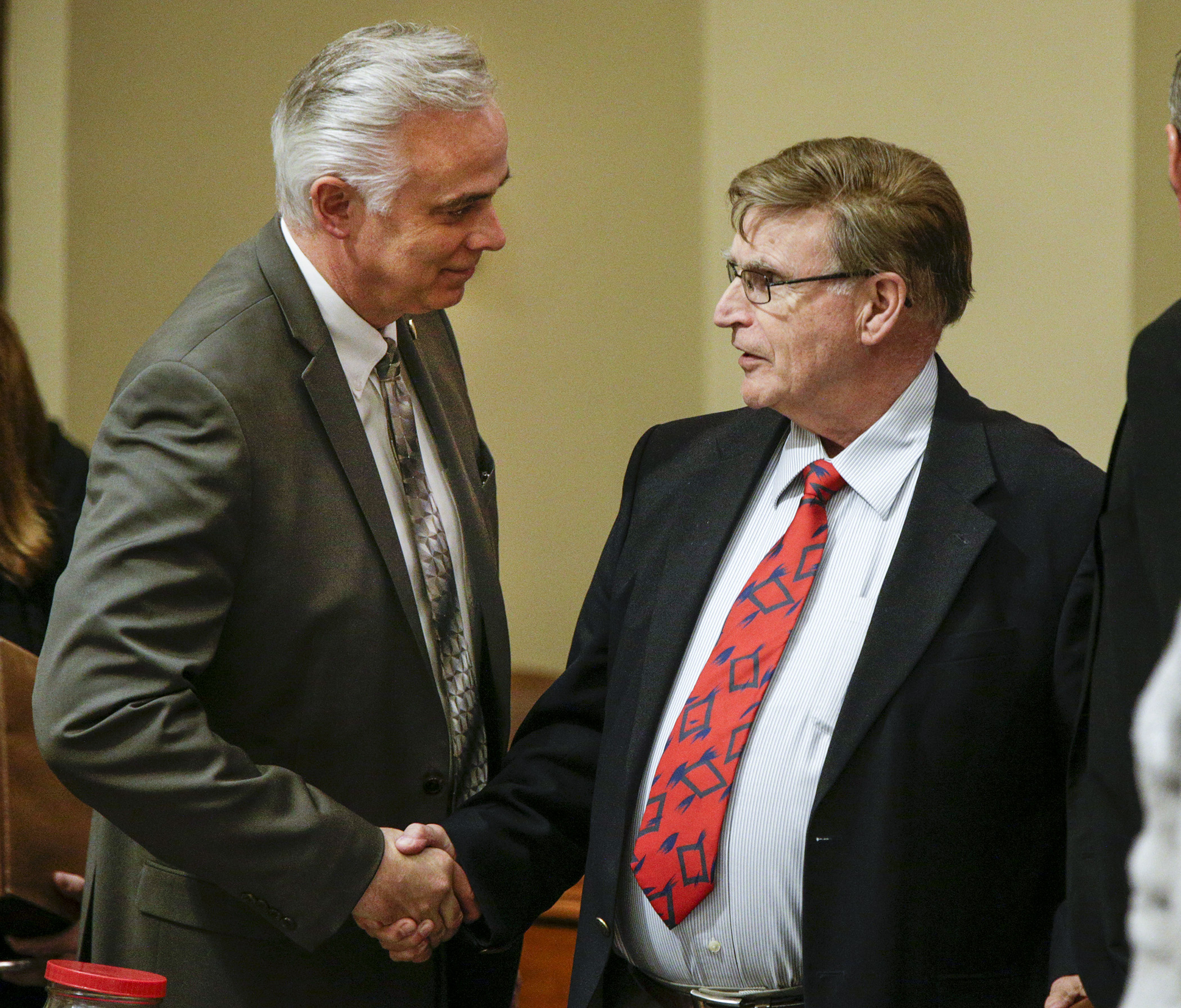House, Senate send governor a second try at omnibus higher ed bill

(Updated 7:34 p.m. with floor action)
After being told by Gov. Mark Dayton their first proposal “fell short,” the omnibus higher education conference committee crafted a new compromise.
Its report for HF2080/SF943*, sponsored by Rep. Bud Nornes (R-Fergus Falls) and Senate President Michelle Fischbach (R-Paynesville), awaits gubernatorial action.
It was passed 39-28 by the Senate Sunday afternoon, then 78-54 by the House.
The report represents a $3.28 billion spending target, a 2018-19 biennium base funding increase of $210 million — $85 million more than the previous proposal vetoed by the governor.
Increases from the previous proposal include $28.5 million more to Minnesota State ($1.4 billion in total funding), $35.9 million to the University of Minnesota ($1.3 billion) and $20.5 million to the Office of Higher Education ($516 million).
The move signifies continued compromise between lawmakers and the governor after a day of seemingly stagnate negotiations, but it’s still a far cry from the request of $318 million in additional funding Dayton sought.
“We’re focusing spending based on the needs that we have. We’re doing all we can to make sure the student is first,” Nornes said, noting the report emphasizes affordability, access and accountability.
Opponents expressed concern that the bill does not invest enough in the future success of students.
“This bill displays the framework for funding higher education in Minnesota is broken,” said Rep. Gene Pelowski Jr. (DFL-Winona). “This bill does not repair it. It may get us beyond the 2018 election, but not much further than that.”
Policy still in place
Policy provisions remain in the bill, but have been adapted.
A provision prohibiting mandatory student fees at Minnesota State and University of Minnesota campuses have been replaced by a student vote requirement on increases of more than 2 percent. If the University of Minnesota raises fees by more than 2 percent without a student vote approval, its appropriation base would be punitively decreased by 1 percent over the next biennium.
The agreement would eliminate the cap for family living and miscellaneous expense tax allowance credits, instead setting the limit at an allowance of 101 percent of the federal poverty level.
Another provision has been changed that would have required Minnesota State to freeze tuition during the 2017-18 academic year and reduce tuition by 1 percent in 2018-19.
Under the new proposal, 2017-18 academic year tuition rates would not exceed the previous year’s rate by more than 1 percent. For the 2018-19 academic year, tuition rates for undergraduates at colleges and universities would not exceed the 2017-18 rate.
The bill requests a tuition freeze at the University of Minnesota over the biennium, but due to the university’s constitutional autonomy, the state cannot require it to adhere to legislative requests.
Tuition relief could not be offset by increases in mandatory fees, but universities would be permitted to increase different tuition charges to cover costs of programs facing increases due to unforeseen and extraordinary circumstances.
Related Articles
Search Session Daily
Advanced Search OptionsPriority Dailies
Legislative leaders set 2026 committee deadlines
By Lisa Kaczke Legislative leaders on Tuesday officially set the timeline for getting bills through the committee process during the upcoming 2026 session.
Here are the three deadlines for...
Legislative leaders on Tuesday officially set the timeline for getting bills through the committee process during the upcoming 2026 session.
Here are the three deadlines for...